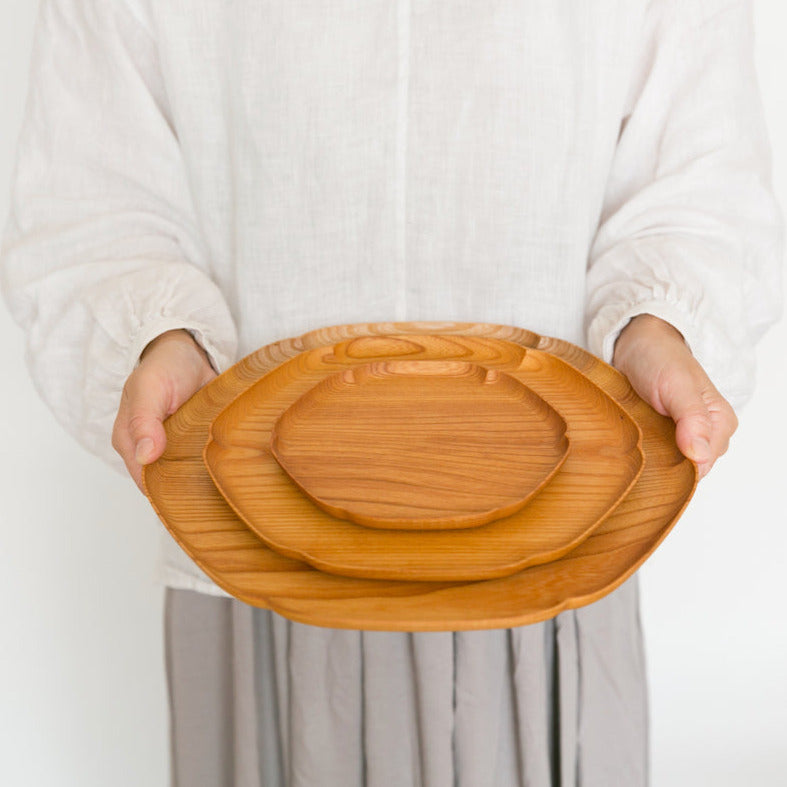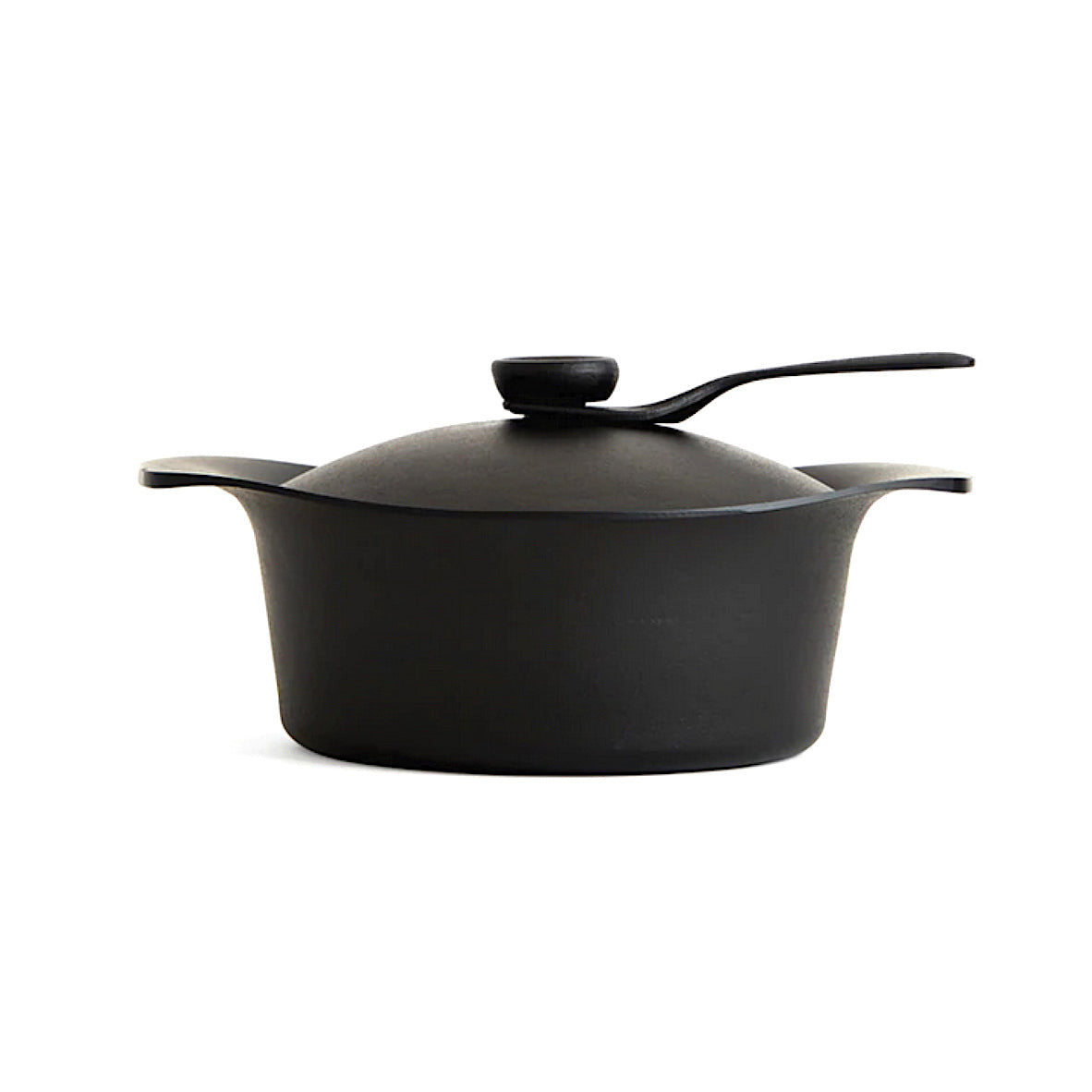
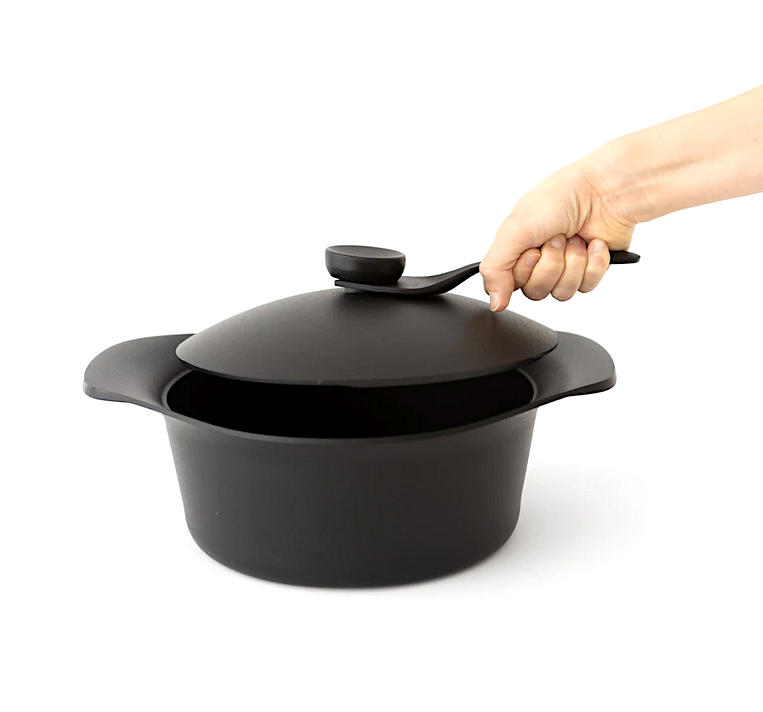
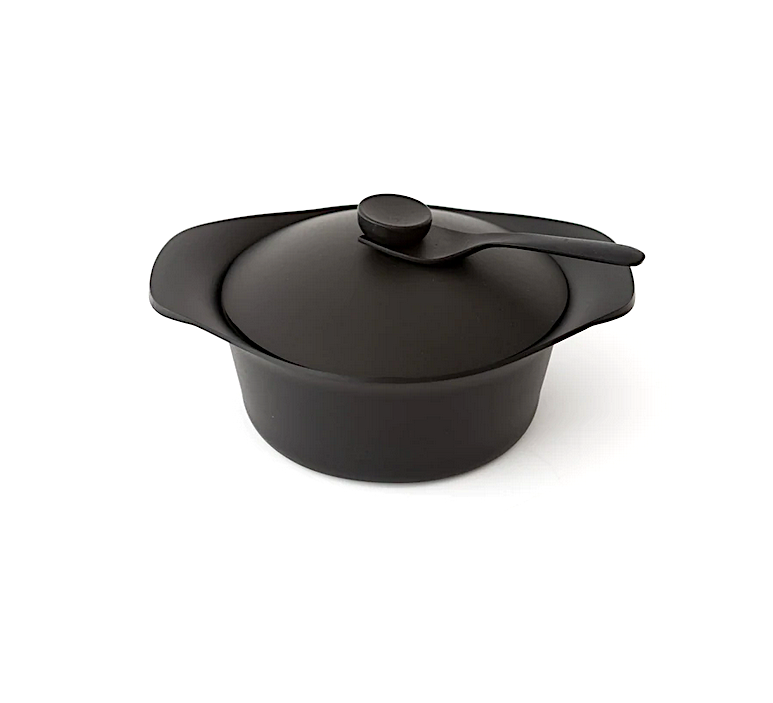
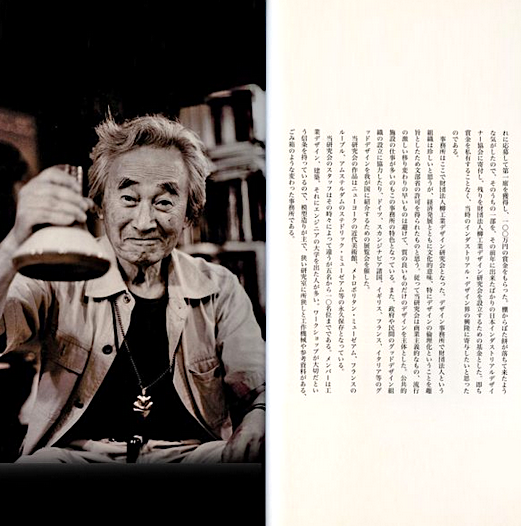
Cast iron pan | Nambu Tekki
- Material: Nambu Tekki cast iron
- Colour: black
- Dimension pan: 33 x 25 x 16 cm ( length x width x height)
- Dimension pan bottom: 22 x 9.8 cm (diameter x height)
- Includes pan, lid and removable handle .
- Extremely durable
- Extra thick cast iron distributes heat evenly .
- Weight: 4850g
- Design: Sori Yanagi
- Good Design Award 2002
- Made in Niigata, Japan
 Sofort lieferbar
Sofort lieferbar
Bereits in 2-3 Werktagen bei dir.
Kostenfreier Versand ab CHF 100,-
Choose options




Beschreibung
Designed in 1999, this deep cast iron pan combines the traditional Japanese craftsmanship of Nambu Tekki with modern design aesthetics. The pan is made from a single thick piece of cast iron that distributes heat quickly and evenly across the surface. Rounded edges make pouring easy, and the removable fork handle keeps your hands cool when you remove the lid. Food is also cooked lean in this pan as it is raised above oils and fat. Suitable for gas, electric,induction hobs (TS274) and oven.
The lacquer coating may be uneven in some areas and have a silver-brown patina. This is part of its natural beauty.
Care instructions:
Season the cast iron pan before first use to create a natural non-stick coating. To do this, scrub the pan with warm soapy water, rub the cast iron thoroughly, then apply a thin layer of vegetable shortening, lard or bacon grease to the bottom. Preheat the oven to 375 degrees and place the pan upside down on a medium rack. Bake for one hour and then allow to cool completely. Repeat this process regularly.
Always wash the pan by hand with hot water, without soap, using a wooden or non-metallic tool to remove any residue. Dry the pan immediately after washing - preferably by placing it on the hob for a few minutes.
Avoid splashing cold water on a hot pan to prevent it from warping over time. Never immerse it in water for a long time.
STORY
Yanagi, who is often ranked with legendary masters of industrial design such as Charles & Ray Eames and Arnie Jacobsen, is considered one of Japan's most influential product designers and a pioneer of the post-war industrial design movement in Japan.
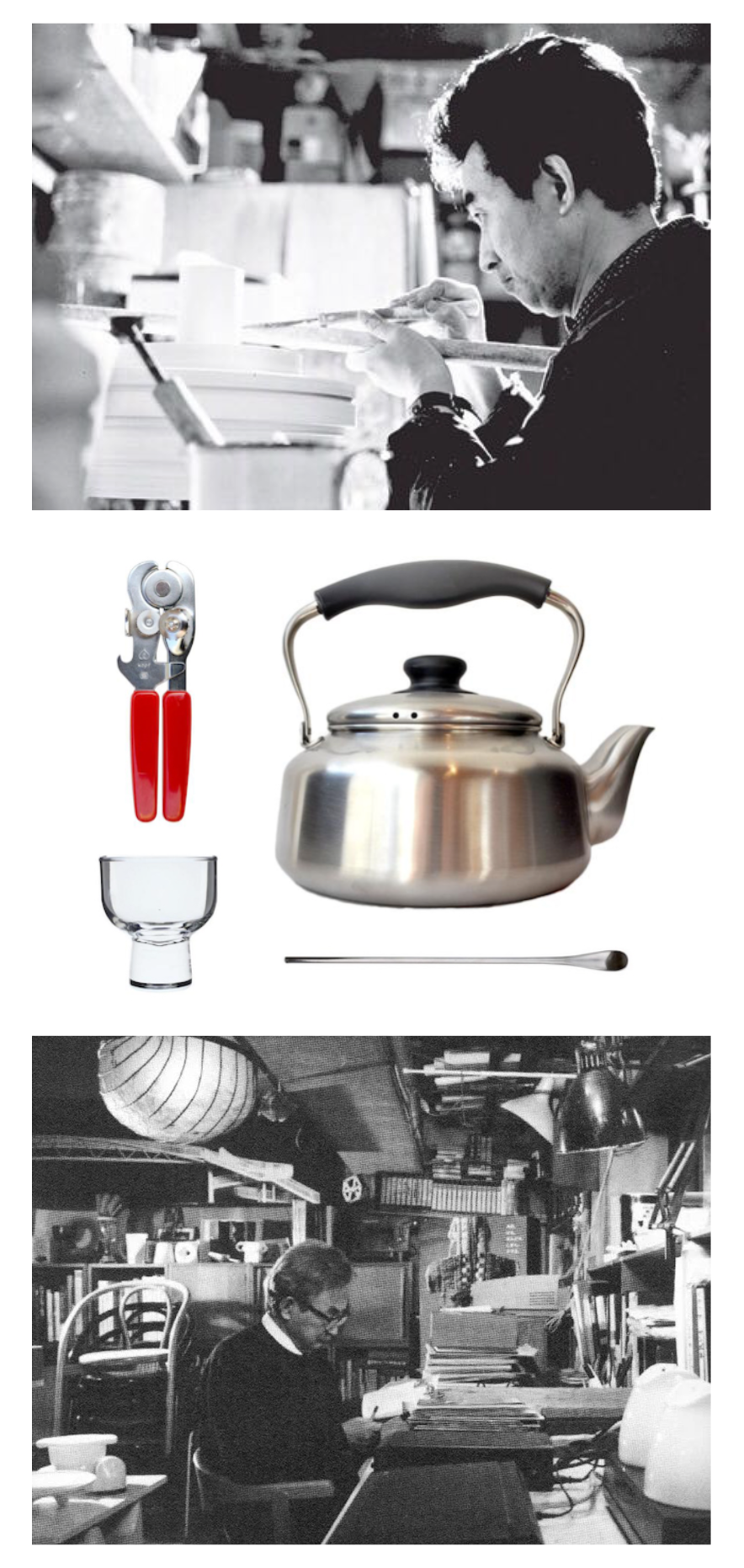
Die Story zu SORI YANAGI
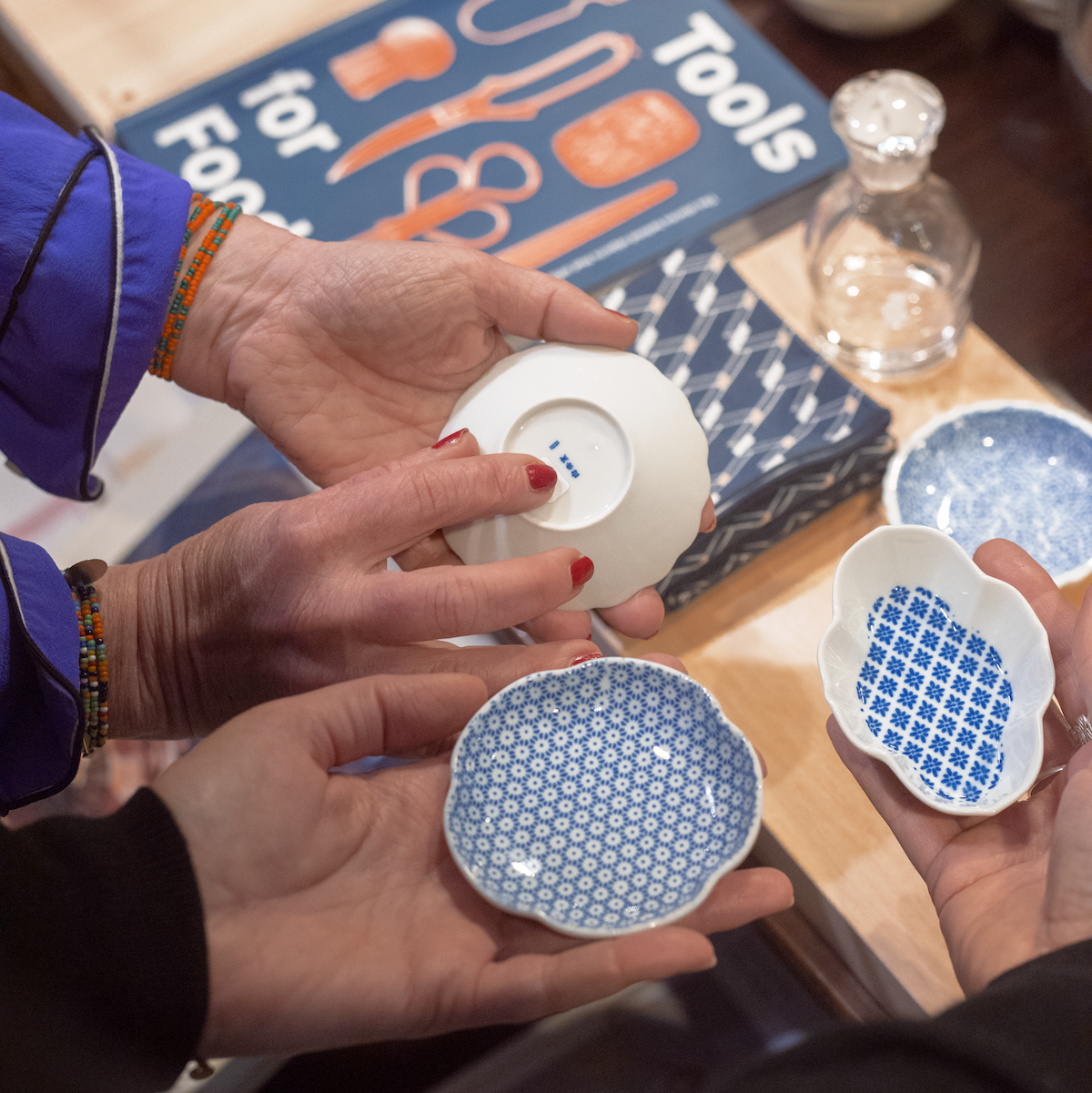
Wollt ihr wissen wer hinter ASANDRI steht
«Wir glauben, dass die Kombination von grossartigem Design und handwerklichen Können wichtig ist. Deshalb unterstützen wir Handwerker weltweit, um ihre Fähigkeiten und Handwerksbetriebe für viele weitere Generationenzu erhalten.»
Kontaktiere uns: info@asandri.com
